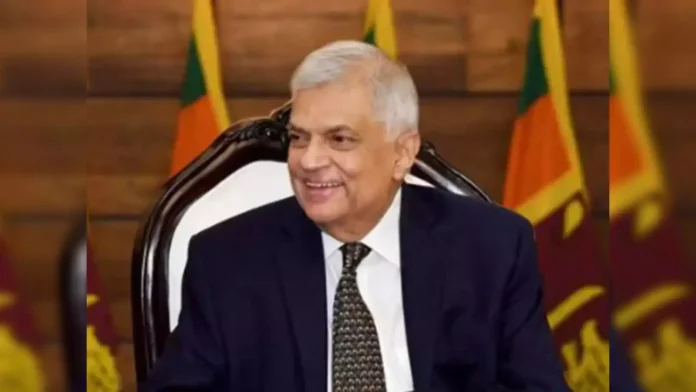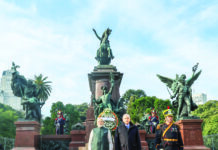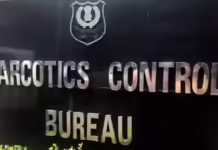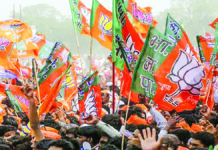COLOMBO: In an exclusive conversation with NewsX/The Sunday Guardian in the backdrop of Prime Minister Narendra Modi’s visit to Sri Lanka, former Sri Lankan Prime Minister, and later President, Ranil Wickremesinghe spoke of India-Sri Lanka relations and Sri Lanka’s path to recovery after its economic downturn. Edited excerpts:
Q: What are your expectations from Prime Minister Narendra Modi’s current visit to Sri Lanka?
A: I would expect that we take the next step in ensuring a closer relationship between our two countries. The vision statement that was prepared in 2023 under my tenure laid out the framework for the same. It included connectivity and collaboration in the dairy sector. The time has come to execute the plans and make them operational.
Q: Why do you think it took so long for the projects and MOUs to become a reality—many projects including a considerable number in energy sector?
A: Unfortunately, many things in Sri Lanka take a long time and sometimes delays occur on the Indian side. Prime Minister Modi has always been active and pushing it. With regard to the coal power station and other energy investments, we signed the MOUs before the Paris Climate Agreement. We also had a similar Japanese project. We offered fresh agreements for an LNG project, but India was more keen towards a solar energy project.
Q: What has been India’s role in bringing back Sri Lanka from the economic turmoil that unfolded?
A: India provided a loan worth $4.5 billion via various lines of credit, which helped Sri Lanka immensely. Moreover, Indian investments along with Indian connectivity project have been helpful. Investors are holding themselves back as Sri Lanka still hasn’t fully recovered from economic bankruptcy. I think Sri Lanka still needs another one-two years for full recovery and Indian investment can certainly help and encourage others to invest in Sri Lanka.
Q: Talking about Indian investments in Sri Lanka, one deal which raises eyebrows is the now scrapped Adani wind power plant deal signed under your government. What went wrong and how should this government handle it?
A: It was because of price. We had multiple projects and each one of them had a different price. Many places where these projects were to be build lacked infrastructure and thus increased cost. However, with regard to the particular project, the investor need not bear the cost but there were other challenges. We made a committee to study the issue, and all the details are available. Adanis’s investment is very important to Sri Lanka, and it will encourage others to invest in Sri Lanka.
Q: Billions have been invested in this mega project called the Colombo Port City by the Chinese. What is the concept behind Colombo Port City and how will this project help Sri Lanka?
A: When I was PM from 2001-2004, we asked a Singapore company to do a plan for Colombo city. They pointed out that the port city was full, and heritage building needed to be demolished for future expansion. They suggested to develop 300 acres of the Harbour area for commercial development, which later increased to 600 acres. The subsequent government signed with a Chinese infrastructure company to develop the Colombo Port City. It could also bring foreign exchange. It was to be later developed into a real estate project.
Q: There are concerns that it may turn into a tax haven and a hub of illegal activities. At a time when Sri Lanka is still recovering, do you think when the masses are suffering such special treatment, discounts and subsidies should be given to the elite?
A: Sri Lanka businesses have always asked for tax relief, however, in this case, the tax concerns are related to foreign investors and not local. All the investments are in dollars. We still have to discuss a few terms with our investors in terms of taxation benefits.
Q: With regard to the Hambantota port, Sri Lanka is still struggling to pay back the humongous loans to the Chinese companies. How is the Colombo Port City project different from the Hambantota project?
A: Hambantota port project was given for a 100-odd-years’ lease for a billion dollars. The Chinese loan was on a concession basis and the money that was made from the project was used as reserve and we decided to pay the Chinese gradually. The overall situation favoured Sri Lanka when we calculated the interest payments.
Q: There have been concerns that the interest on the Chinese loans is way higher than what is offered by many countries.
A: It’s up to them. They have to recover the money.
Q: Let’s talk about your term. You are the man who brought back Sri Lanka from the economic turmoil when you signed the loan restructuring deal with the IMF. How come when elections came around the people did not show faith in you and your party?
A: Every leader faces challenges when they undertake reforms. I did not offer any tax relief or pay increase, so that worked to the advantage of those parties, but they should be careful.
Q: It seems the people of Sri Lanka want to move away from the legacy and dynasty based parties, which Sri Lanka has been used to for 70 years.
A: We broke the dynasty in 1988 when Premadasa became President. He didn’t have any dynasty. In 2015, we backed candidates who did not belong to any dynasty. We have people who came from outside the dynasties.
Q: Do you think something remarkably has happened in the election?
A: It’s normal if people want to vote for new parties. Look at the UK. People there want to vote for Nigel Farage. Similar things are happening in France. Trump too switched from Democrat to Republican. It’s happening all over the world.
Q: It’s a universal trend too. Far right parties are gaining prominence globally. How is it impacting the economy?
A: You can’t give any relief at this time. Cost of operation is high. There is just not enough money in circulation.
Q: What are your views on the current Anura Kumara Dissanayake government?
A: In my term in just six months, we solved the ration shortages and signed a deal with the IMF. The current government is new and should be analysed after first 100 days. It seems they are not moving.
Q: The Sri Lanka government has started an inquiry and established a commission to study your role in the Easter Sunday attack, Central bank Bond scam and operating torture camps? How do you answer such allegations?
A: What did the commission report say? … It says while transferring some property to the police I should have gone through the superintendent and a set procedure. I am open to debate about these allegations. Regarding the bond scam…I had nothing to do with it. Some people were prosecuted and the issue is in the court.
The commission that was set up for the Easter attack has cleared my name. All these allegations are pushed by foreign churches. It is a Buddhist country, and I am not answerable to any bishop or cardinal. The “born-again church” in Sri Lanka has made no such allegation. Every country including yours has issues regarding minorities.
Q: I am going to bring back the issue of Tamils who live in northern Sri Lanka. There are fresh promises made by the current government. There are talks about fresh elections in that part. How do you think this move should be taken forward?
A: When I was the PM, we took it forward. It would be good to see new faces from the North. They should be careful. LTEE may regain ground.
Q: There was an issue that was raised in Indian Parliament recently regarding the Indian fishermen who have been detained by the Sri Lankan authorities. Is there a reasonable solution to this problem because it has been lingering for a while now?
A: If a person jumps into your house and tries to take some object, what would you do? Would you hand over them to the police or shake their hands and let them go? The problem is your Tamil fishermen who come in our waters and you talk about the rights of Tamils. India is the key for Sri Lanka and I hope to see a developed Sri Lanka with a good law and order situation.








